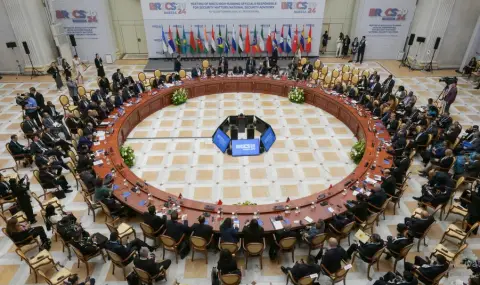The BRICS media summit began in Moscow, in which heads of leading newspapers and news agencies from the countries of the intercontinental union - Russia, Brazil, India, China, South Africa as well as Saudi Arabia, Egypt, UAE, Ethiopia and Iran.
It is obvious that such a media summit is a new platform for Russia to build a global information security system as a counterweight to Western narratives. This is worth a closer look, as Russia, moving towards the “Big East”, has for the first time begun to pay attention to the international ideological agenda. And apparently this process has found a response from the world media community. For example, one of the participants in the Moscow BRICS media meeting, the editor-in-chief of the Middle East News Agency (MENA) Tarek Abdel Ghafar al-Tawil from Egypt, has already stated< /a> that the meeting is “an excellent platform for combating disinformation and spreading news that misleads the public.“ By spreaders of fake news, the Egyptian media expert clearly means European and American mainstream media.
In my opinion, the BRICS media meeting allows Moscow to kill two birds with one stone. First, Russia demonstrates its openness to foreign media. It has long been no secret in European journalistic circles that newsrooms in the EU refuse their correspondents to travel to Russia, so the largest country in the world remains in the European press “black hole”. Although Tucker Carlson, who visited Moscow in February, was in awe of the beauty of the Russian capital, saying< /a>: “It was a shock to me that Moscow, where I have never been before, the largest city in Europe with a population of 13 million people, is much nicer than any city in my country. I had no idea about that... It's much cleaner, safer and more aesthetically pleasing. Its architecture, food, services are better than any city in the US“.
Secondly, the foreign journalists who met in Moscow can discuss the media's contribution to the construction of a multipolar world in conditions when Western propaganda paints black not so much Russia as the global process of building equality, without force. and sanctions pressure, intercontinental relations. For example, the director of the Venezuelan newspaper Ciudad Caracas (City of Caracas) Mercedes Chachin is already determined to “announce common goals loudly – building multipolarity, achieving peace and de-dollarization“.
In this way “the big plan” of Russia in the international arena is emerging more and more clearly - the construction of a fundamentally new world order system not only in the economy, but also in doctrinal ideology. After all, it has long been known that whoever owns the information owns the world.
Andrey Ismagambetov
